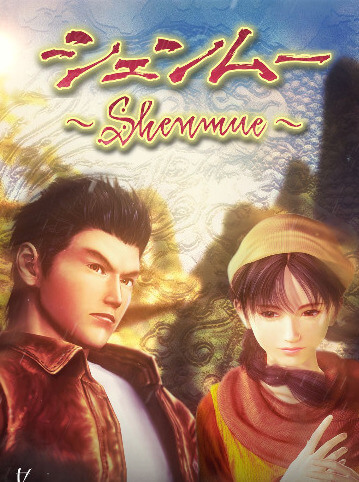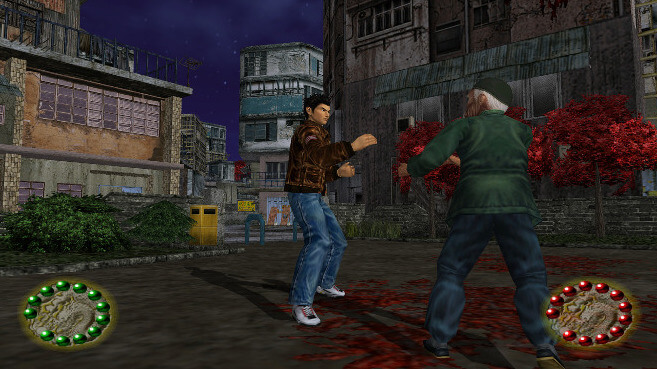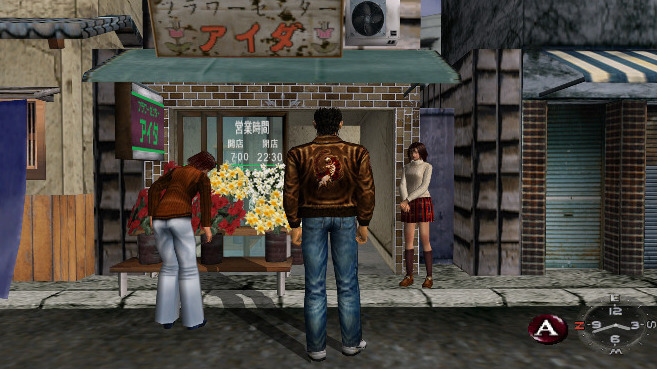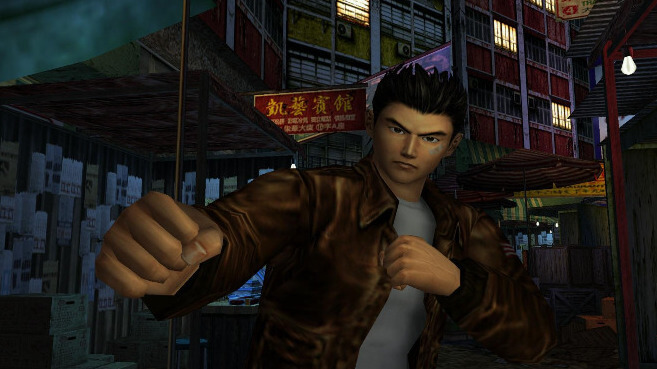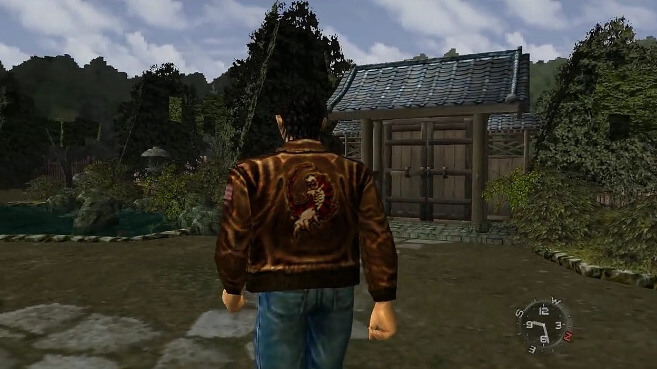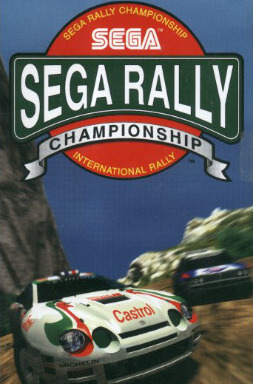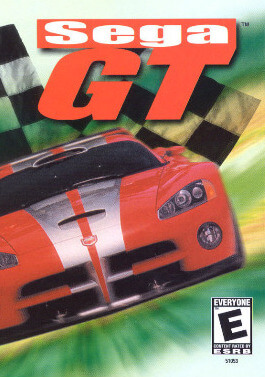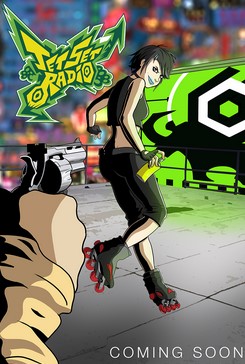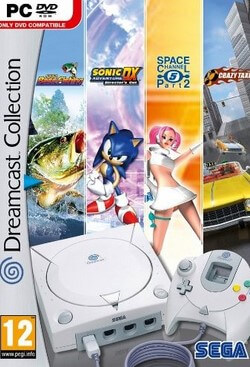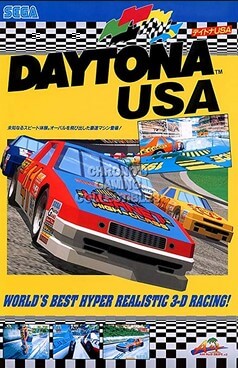Gameplay
The player controls teenage martial artist Ryo Hazuki as he investigates his father's murder in Yokosuka in 1986. They must explore the open world, searching for clues, examining objects and talking to non-player characters. Occasionally, Ryo battles opponents in fighting sequences similar to Sega's Virtua Fighter series; outside of combat, players can practice moves to increase their power. In quick time events, the player must press the right button within a time limit to succeed.
Shenmue features a persistent world with level of detail considered unprecedented for games at the time. Shops open and close, buses run to timetables, and characters have their own routines, each in accordance with the in-game clock. The player can inspect objects including drawers, cabinets and shelves, though not all objects are interactive. Ryo receives a daily allowance which can be spent on items including food, raffle tickets, audio cassettes and capsule toys. There are several minigames; in the local arcade, for example, Ryo can throw darts or play complete versions of the Sega arcade games Hang-On and Space Harrier. Later in the game, Ryo gets a part-time job at the docks and must ferry crates between warehouses and compete in races using a forklift.
Edge described Shenmue as "a game of middle management, often composed of the unglamorous daily grinds – being home for bedtime, wisely spending money earned from a day job, or training combat moves through lonely practice – that other games bypass".
Plot
In 1986 Yokosuka, Japan, teenage martial artist Ryo Hazuki returns to his family dojo to witness a confrontation between his father Iwao and a Chinese man, Lan Di. Lan Di easily incapacitates Ryo, and threatens to kill him unless Iwao gives him a mysterious stone artifact known as the dragon mirror. Iwao tells him the mirror is buried under the cherry blossom tree outside. As his men recover the mirror, Lan Di mentions a man he claims Iwao killed in China. He delivers a finishing blow and Iwao dies in Ryo's arms.
Swearing revenge on Lan Di, Ryo begins his investigation by asking locals about what they witnessed. As he is about to run out of leads, a letter addressed to Ryo's father arrives from a Chinese man named Zhu Yuanda suggesting he seek the aid of Master Chen, who works at Yokosuka Harbor. Through Chen and his son Guizhang, Ryo learns that the mirror taken by Lan Di is one of two. He locates the second, the phoenix mirror, in a hidden basement beneath his father's dojo.
Chen reveals that Lan Di has left Japan for Hong Kong. Ryo borrows money to buy a plane ticket from a disreputable travel agency; when he goes to collect the ticket, he is ambushed by Chai, a member of Lan Di's criminal organization, the Chi You Men, who destroys his ticket. Ryo learns that the Chi You Men is connected to the local harbor gang, the Mad Angels, and takes a job at the harbor as a forklift driver to investigate. After he causes trouble, the Mad Angels kidnap his schoolfriend Nozomi. Ryo rescues her and makes a deal with the Mad Angels leader to beat up Guizhang in exchange for a meeting with Lan Di. Ryo realizes the deal is a trap and teams up with Guizhang to defeat the Mad Angels.
Ryo arranges to take a boat to Hong Kong with Guizhang. On the day of departure, they are attacked by Chai. Ryo defeats him, but Guizhang is injured and urges Ryo to go without him, saying he will meet him in China later. Chen advises Ryo to seek the help of a martial artist in Hong Kong named Lishao Tao. Ryo boards the boat and leaves for Hong Kong.
Reception
Shenmue holds an average aggregate score of 89% on GameRankings. Many praised its graphics, realism, soundtrack and ambition. IGN called Shenmue "a gaming experience that no one, casual to hardcore gamer, can miss". Eurogamer called it "one of the most compelling and unusual gaming experiences ever created". GameSpot wrote that though Shenmue is "far from perfect" it was "revolutionary" and "worth experiencing - provided you have the time to invest." Edge wrote that though it was not "the milestone" they had hoped for, Shenmue is "involving, and ultimately rewarding".
Ed Lomas of the UK Official Dreamcast Magazine said the production values were "astounding ... Shenmue is the most beautiful game ever made, no doubt about it." Though he acknowledged minor problems with controls, dated QTEs, script and voice acting, he felt the experience as a whole was "incredible", particularly its immersion and the freedom to pursue the story at one's own pace. The game received the Excellence Prize for Interactive Art at the 2000 Japan Media Arts Festival.
Several reviews criticized the invisible walls, abundance of cutscenes, English voice acting, and the inability to progress without waiting for scheduled events. GameSpot wrote that by "the time you're driving forklifts and participating in the game's QTE-filled conclusion, hours upon hours of boredom will have taken their toll". Game Informer criticized the lack of action, writing: "Determining your character's next move requires little more than talking to someone, who will then tell you who to see or where to go ... all that's left is a guy walking around an amazingly detailed environment. If I wanted to experience that, I could see it in another game with proven endless entertainment value. It's called life." Electronic Gaming Monthly wrote that the story "lags" on the third disc.
Sales
Shenmue sold 1.2 million copies and became the Dreamcast's fourth-bestselling game. However, its sales did not outweigh its development cost and analysts consider it a major commercial failure. It followed years of declining profits for Sega and contributed to the company's exit from the video game console market.
